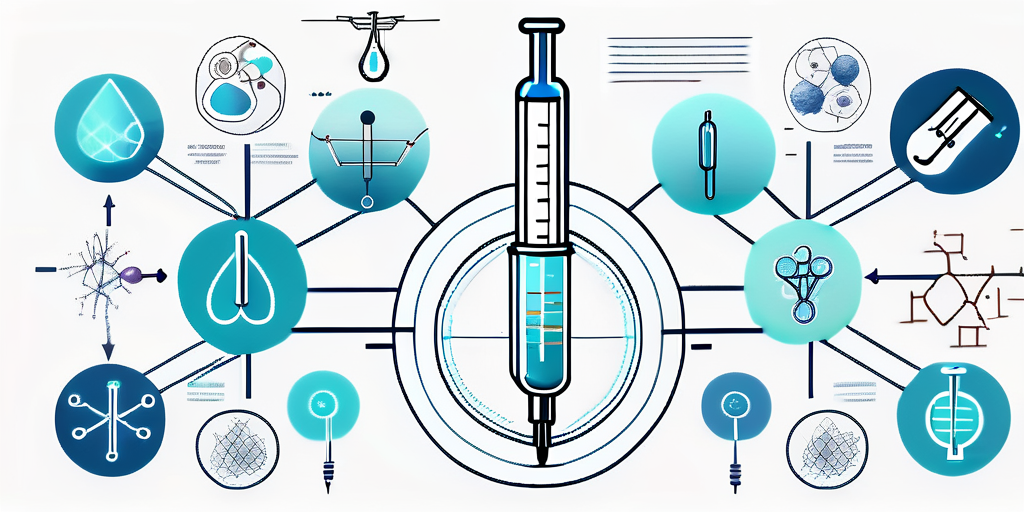Discover how Clomid can benefit men in improving fertility, increasing testosterone levels, and treating hypogonadism.
Introduction to Clomid
Clomid, also known as clomiphene citrate, is commonly associated with female fertility treatments. However, this medication can also offer significant benefits for men struggling with certain reproductive issues. In this article, we will explore the various benefits of Clomid, its role in male fertility, potential side effects, the process of taking Clomid, and its effectiveness in treating male factor infertility.
Understanding Clomid: A Brief Overview
Before delving into the benefits of Clomid, it is important to have a basic understanding of what this medication is and how it works. Clomid is a nonsteroidal selective estrogen receptor modulator (SERM). It was originally developed for the treatment of female infertility by stimulating the release of eggs from the ovaries.

Clomid, also known by its generic name clomiphene citrate, has garnered attention for its off-label use in men to address conditions such as hypogonadism and infertility. While primarily recognized for its effectiveness in women, Clomid has shown promising results in men by modulating hormone levels to enhance fertility and testosterone production.
What is Clomid?
Clomid, or clomiphene citrate, works by blocking estrogen receptors in the hypothalamus, a region of the brain that regulates hormone production. By doing so, it prompts the pituitary gland to produce more follicle-stimulating hormone (FSH) and luteinizing hormone (LH). In men, increased levels of these hormones can enhance testosterone production and improve reproductive function.
Moreover, Clomid’s mechanism of action in men involves a cascade of hormonal responses that ultimately lead to an increase in testosterone levels. This surge in testosterone can have positive effects on muscle mass, libido, and overall well-being in men experiencing hormonal imbalances.
How Does Clomid Work?
Clomid works by stimulating the production of gonadotropin-releasing hormone (GnRH) from the hypothalamus. This hormone then signals the pituitary gland to release FSH and LH, which are responsible for the production of sperm and regulation of testosterone levels. By increasing the levels of FSH and LH, Clomid can help boost sperm production and improve hormone balance in men.
Furthermore, the use of Clomid in men has been a subject of ongoing research to explore its potential benefits beyond fertility. Studies have indicated that Clomid may play a role in improving symptoms of hypogonadism, a condition characterized by low testosterone levels. This highlights the versatility of Clomid in addressing various hormonal concerns in men, showcasing its potential as a multifaceted treatment option.
The Role of Clomid in Male Fertility
Many men who experience infertility issues may benefit from incorporating Clomid into their treatment plan. This medication offers several potential benefits for male fertility, including:
Clomid and Testosterone Levels
One of the primary benefits of Clomid is its ability to increase testosterone levels. When testosterone levels are low, it can negatively impact sperm production and overall reproductive function. Clomid helps to stimulate the production of testosterone, which can enhance fertility and improve sexual health.
Clomid’s Impact on Sperm Count

In addition to increasing testosterone levels, Clomid can also improve sperm count in men with low sperm counts. By stimulating the release of FSH and LH, Clomid helps to promote the production of healthier and more motile sperm. This increase in sperm count can significantly enhance the chances of achieving pregnancy.
Furthermore, Clomid is known to have a positive impact on sperm morphology, which refers to the size and shape of sperm. Men with abnormal sperm morphology may have difficulties with sperm motility and fertilization. Clomid can help normalize sperm morphology, increasing the likelihood of successful fertilization.
Potential Side Effects of Clomid
While Clomid can offer significant benefits for male fertility, it is essential to be aware of potential side effects. Some men may experience mood swings, hot flashes, or changes in vision while taking Clomid. It is crucial to discuss any concerns or side effects with a healthcare provider to determine the best course of action.
Potential Side Effects of Clomid in Men
While Clomid offers several benefits, it is essential to be aware of potential side effects that may arise. It is important to note that not all men will experience side effects, and they are typically temporary and mild. Some common side effects include:
Common Side Effects
– Hot flashes
– Mood swings
– Nausea
– Headaches
Hot flashes, characterized by sudden feelings of warmth, flushing, and sweating, are a common side effect of Clomid in men. These episodes can be uncomfortable but are usually short-lived and diminish over time as the body adjusts to the medication. Mood swings may also occur, ranging from irritability to emotional sensitivity, impacting the individual’s overall well-being during treatment.
Nausea and headaches are other reported common side effects of Clomid in men. Nausea may present as a feeling of queasiness or an urge to vomit, while headaches can vary in intensity from mild discomfort to more severe pain. These symptoms are typically manageable and tend to improve as the body adapts to the medication.
Long-Term Risks
Although rare, there are potential long-term risks associated with Clomid use in men. These risks include blurred vision, liver dysfunction, and increased risk of blood clots. It is crucial to consult with a healthcare professional and undergo regular monitoring during Clomid treatment to minimize these risks.
Blurred vision is a serious side effect that may indicate a more severe reaction to Clomid. If this occurs, it is important to seek medical attention promptly to prevent any further complications. Liver dysfunction is another rare but serious long-term risk that can manifest as jaundice, abdominal pain, or unusual fatigue. Monitoring liver function through blood tests is essential to detect any early signs of liver issues.
Furthermore, an increased risk of blood clots is a potential concern with Clomid use in men, especially in those with pre-existing clotting disorders or other risk factors. It is crucial to discuss any personal or family history of blood clots with a healthcare provider before starting Clomid treatment to assess the individual’s overall risk profile and implement appropriate monitoring measures.
The Process of Taking Clomid
Before starting Clomid, it is important to consult with a healthcare professional who specializes in male fertility. They will determine if Clomid is the right treatment option for you and guide you through the process. The process typically involves:
Male infertility can be a complex issue, and Clomid is just one of the treatment options available. It’s crucial to have a thorough evaluation to understand the underlying causes of infertility before starting any medication. Your healthcare provider may recommend lifestyle changes, dietary adjustments, or other treatments in conjunction with Clomid to optimize your chances of success.
Dosage and Administration
Clomid is usually taken orally in pill form. The dosage and duration of treatment will depend on individual circumstances, including your medical history and fertility goals. Your healthcare professional will prescribe the appropriate dosage and provide instructions on when and how to take the medication.
It’s important to follow the prescribed dosage and schedule diligently to maximize the effectiveness of Clomid. Missing doses or taking the medication at the wrong time can impact its ability to regulate hormone levels properly. Your healthcare provider may recommend specific times of the day to take Clomid to enhance its absorption and efficacy.
What to Expect When Taking Clomid
Once you begin taking Clomid, your healthcare professional will monitor your progress through regular blood tests. These tests will evaluate testosterone and sperm count levels to determine the effectiveness of the treatment. Throughout the process, it is essential to maintain open communication with your healthcare professional and report any changes or concerns promptly.
Monitoring your body’s response to Clomid is crucial for adjusting the treatment plan if needed. Your healthcare provider will interpret the test results and make recommendations based on your individual hormone levels and sperm parameters. It’s normal to experience fluctuations in hormone levels during Clomid treatment, and your healthcare team will guide you through any necessary modifications to optimize the outcome.
The Effectiveness of Clomid in Treating Male Infertility
Studies have shown promising results regarding the effectiveness of Clomid in treating male infertility. While individual results may vary, research has revealed that Clomid can significantly improve sperm count and overall sperm quality. The success rates of Clomid treatment can also be influenced by various factors.
Success Rates of Clomid Treatment
The success rates of Clomid treatment in men can vary depending on the specific fertility issue and the individual’s response to the medication. However, studies have shown that Clomid can increase sperm count and improve overall fertility in a significant number of men. In some cases, combining Clomid with other fertility treatments may further enhance the chances of achieving pregnancy.
Factors Influencing the Effectiveness of Clomid
Several factors can influence the effectiveness of Clomid in treating male infertility. These factors include the underlying cause of infertility, the duration of treatment, and the individual’s overall health. It is crucial to undergo a thorough evaluation with a healthcare professional to determine the most appropriate treatment plan and optimize the chances of success.
The Benefits of Clomid: Conclusion
In conclusion, Clomid offers numerous benefits for men struggling with certain reproductive issues. From boosting testosterone levels and improving sperm count to enhancing overall male fertility, Clomid can be an effective treatment option. However, it is essential to consult with a healthcare professional specializing in male fertility to determine if Clomid is the right fit for your needs. By closely monitoring your progress and addressing any concerns or side effects, you can maximize the potential benefits that Clomid has to offer.



